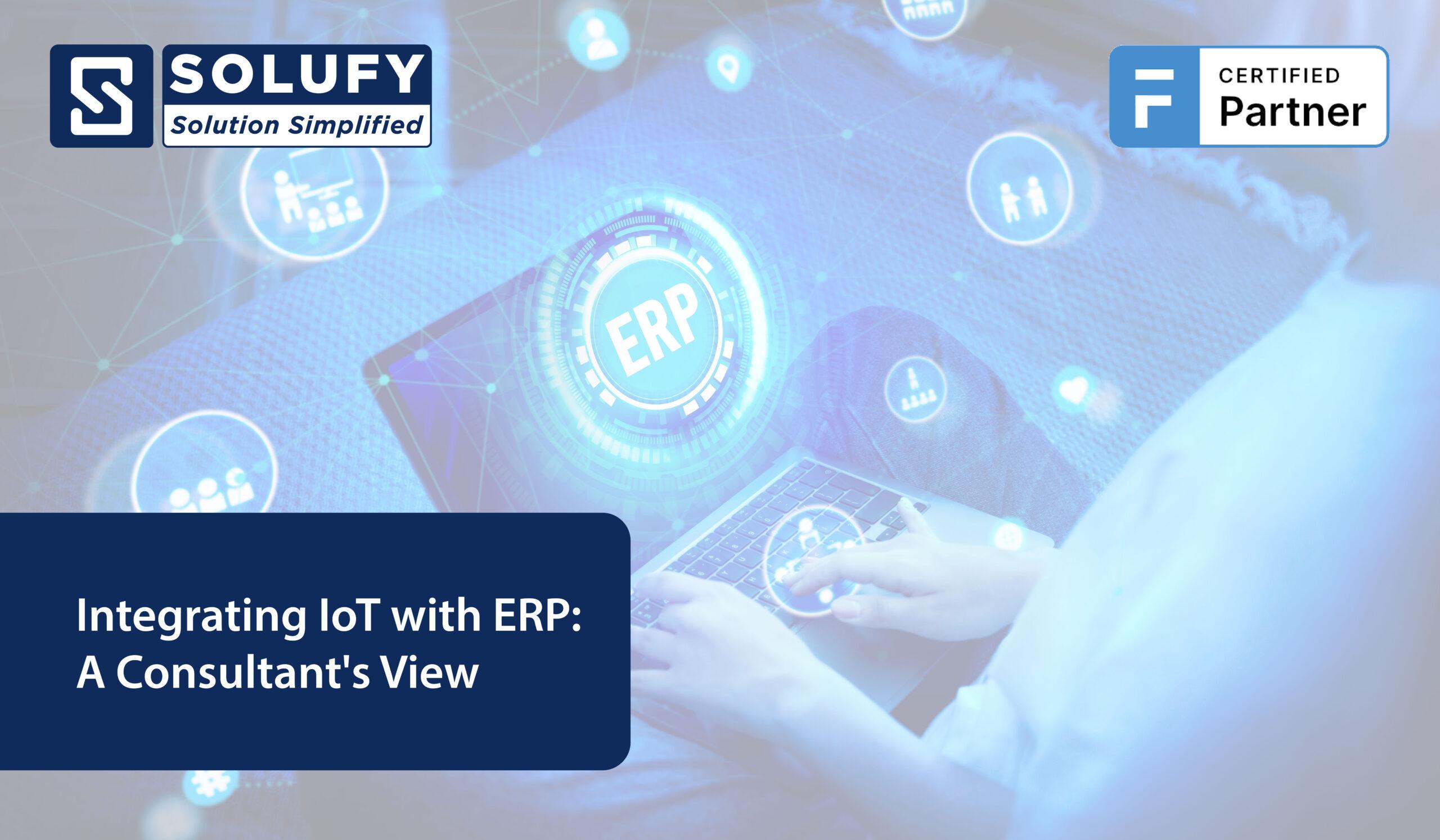The coming of both the Internet of Things and Enterprise Resource Planning systems changed the whole perspective of business technology. I am an ERP consultant who has witnessed the dramatic change that integrating these two technologies can bring to a business. Convergence of IoT and ERP presented totally new opportunities for companies in terms of efficient operations, decision-making, and growth. The article deals with the finer aspects of how IoT can integrate with ERP, the benefits, and challenges, with practical applications from a consultant’s vantage point.
Confluence of IoT and ERP
Essentially, IoT implies inter-connectivity between devices or sensors, which collect and share data over the internet. On the other hand, an ERP system is a comprehensive software platform that packages all relevant business processes of an organization—like finance, human resources, supply chain, customer relationship management, and so on—into one system. The integration of these two, therefore—IoT and ERP—provides a robust infrastructure for collecting, processing, and analyzing real-time data.
Improved visibility is just one of the many benefits of this integration. IoT devices can monitor and collect data from several points in the supply chain, production processes, or even from customer interactions. All this information is entered into an ERP system to create a comprehensive overview of operations, so that businesses may determine the bottlenecks, optimize resource allocation, and generally enhance efficiency.
Benefits of IoT-ERP Integration
1. Real-time Data and Insights:
The real-time data produced by devices can be integrated very easily into Enterprise Resource Planning systems and provide relevant, updated information concerning critical business metrics. This is a very critical requirement for decision makers within organizations, for which decisions are based on a backbone of accurate data. For instance, in the context of a manufacturing unit, IoT sensors may track equipment performance, and the ERP system analyzes that data to determine when equipment maintenance might be necessary to prevent or minimize downtime and to ensure more efficient production.
2. Supply Chain Management:
In this regard, the IoT-ERP integration can definitely bring a sea change in the erstwhile supply chain management. It helps trace the movement of goods, study storage conditions, and predicts demand patterns to optimise inventory levels, minimise wastage, and improve delivery time—thereby improving customer satisfaction and contributing to cost savings.
3. Predictive Maintenance and Asset Management:
One of the most critical advantages of integration between IoT and ERP is predictive maintenance. The sensors inside the IoT are capable of following the condition of machinery and equipment on a continuous basis. They will be in a position to pick up anomalies that may indicate imminent machine failure. ERP could then create schedules for maintenance activities based on this data, thereby preventing unexpected breakdowns and increasing the life of assets.
4. Improved Customer Experience:
Besides, IoT devices can further be utilized to capture data about the behaviours and preferences of the customers. All of this information can be supplied to the ERP system for delivering personalized services and optimization of the product and customer experience. For example, a retail organisation could exploit IoT data to monitor customer movement around the store, purchase tendencies, and the inventory level.
Challenges and Considerations
Though there are many benefits, the task of integration of IoT and ERP is difficult. Major concerns revolve around the security of the data. The huge amount of information generated from these devices may be an attractive target for cyber-attacks. Security and integrity regarding this data become very important. Businesses must thus ensure strong measures to safeguard it with robust cybersecurity and comply with concerned regulations that protect sensitive information.
The second challenge in the adoption of the IoT lies in the complexity associated with integrating it with existing ERP systems. IoT devices generate data in different formats, so to make it consistent with the ERP a lot has to be done at the planning and execution levels. It is very important to engage experienced consultants and technology partners who have a good understanding of both IoT and ERP ecosystems.
Second, the amount of data that these things in the IoT world generate is huge. A business needs to set up appropriate infrastructural and technology tools to process and analyze it rightly. Advanced analytics and machine learning algorithms can be set within the ERP system that could aid in gaining insight into relevant data.
Practical Applications and Future Prospects
IoT and ERP integration have applications in various industries. This is applied in manufacturing to track production processes, optimize inventory, and manage the supply chain. In the healthcare sector, IoT devices could be used in tracing patients’ vitals, while an ERP system would oversee patients’ record management and smooth operations within a hospital.
Therefore, the long-term prospects for IoT-ERP integration are huge. In this respect, the value of data generated with evolving and more sophisticated IoT technology could prove to be huge. Companies embracing such integration would be better positioned to remain competitive amid increasing data-centricity.
In the final analysis, the convergence of IoT and ERP provides a game changer in businesses across different industries. It delivers real-time insights, offers greater operational efficiency, and enables great customer experiences. However, issues to do with data security, integration complexity, and management will need to be overcome if this mighty technology is to become part and parcel. My take is that as an ERP consultant, successful integration of IoT with the ERP will continue to be a major driver of success in business in the foreseeable future.

